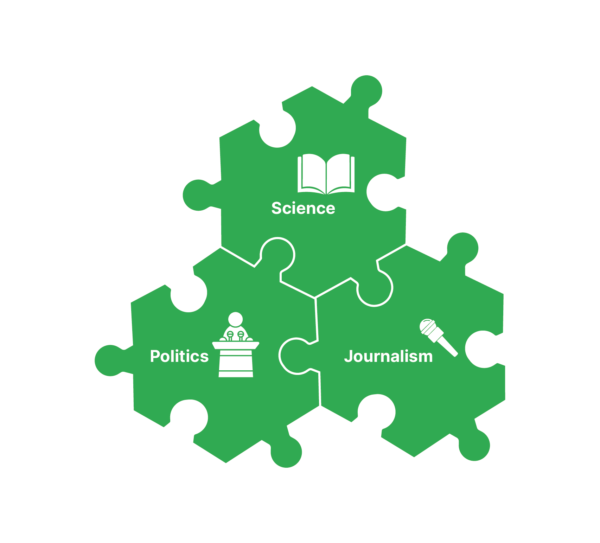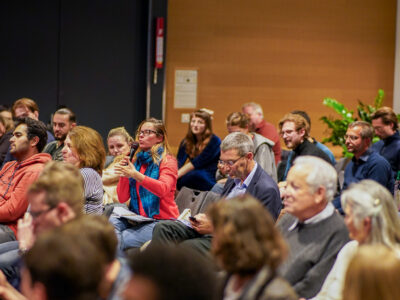Download
In short
Health crisis, ecological change, questions of gender equality and discrimination, sharing personal opinions on international international events:
Science is being put under pressure: Its growing influence as a system with which to understand and explain the world is simultaneously causing desires and pushback. Some want for science to be a part of politics as much as possible and thereby blur the line between scientific work and political action. Others insist that science should avoid any public profile and keep its distance from anything that could make it seem political. We reject both positions. Science should not do politics, but neither can it avoid being political.
Science and politics cannot be separated, however, they must be differentiated.
In order to maintain trust in science, it is crucial to resolve controversies and create space for an open and constructive debate on the role of science in politics and the public sphere. However, this willingness to engage in dialogue cannot take place without a clear understanding as well as a clear division of roles between science, politics, and the media.
Science needs competent and critical journalism
The importance of one key player in this debate should not be overlooked: The media strongly influences the understanding of the relationship between science and politics. At the same time, the media is influenced by the understanding of the roles of science and politics. Competent and reliable journalism is therefore crucial to ensure both competent communication of science and scientific methods as well as to provide critical and independent reporting on statements and scientists.
Aim of the project
On the occasion of the 10th anniversary of Reatch, we want to encourage a debate on the role that science plays, could play, and should play in our society. A debate that is being held on various platforms, from diverse perspectives, and through different channels. The theses presented in the following are intended as a starting, but not the concluding point for this debate.
With the the participation of representatives from science, politics and the media, we will organise a number of public events in the course of the period 2024-2025 on exactly this.
Articles on the Reatch blog reflect the personal opinions of the authors and do not necessarily reflect those of Reatch or its members.



Comments (0)